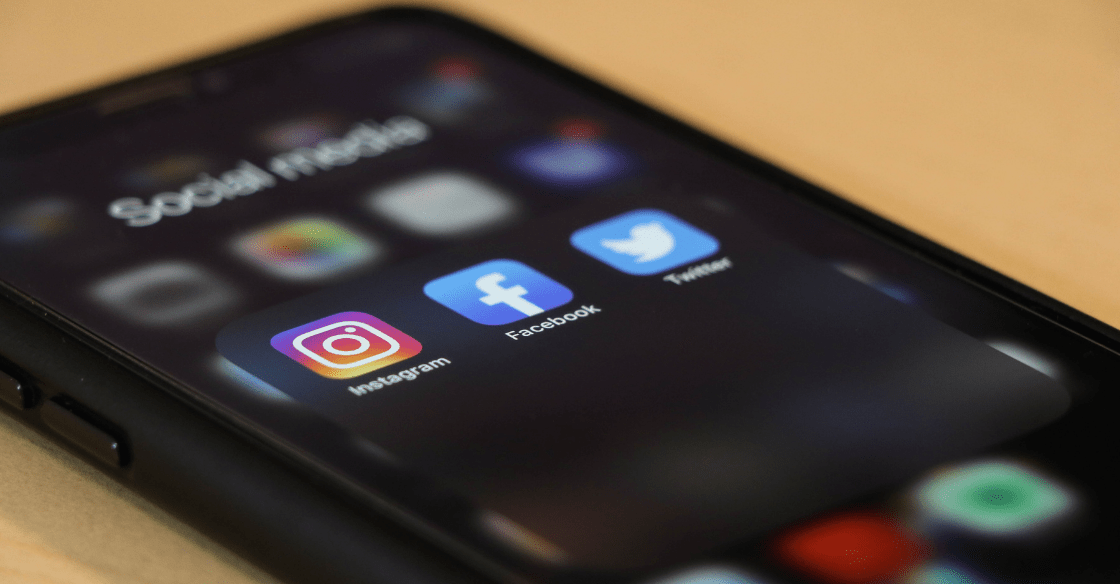Social media marketing allows us to engage with customers in a more personal way than ever before.
On apps like Instagram, Facebook, and TikTok, we can create brand personas and identities that are more in tune with social trends and better understand our specific markets. Of the 82% of Americans on social media sites, almost all of them follow and engage with at least one brand.
Your company’s social media followers make up an extremely lucrative market. You’ve already found individuals that are interested in your product so now, you can focus on conversions and sales. Plus, they will see real-time matched interests from other followers who are liking and commenting.
So how has social media revolutionized the marketing world? Well, it’s playing a critical role in our ability to bridge the customer experience gap, which is the gap between what customers want and what a business offers them.
Most business owners considerably overestimate the success of their marketing efforts, meaning their gap can be pretty significant. A variety of factors can be responsible for a company’s customer experience gap, including:
- Lack of information about a product
- Poor customer service
- Not enough product variety
- Poor market research
- Inconsistent brand image
According to one study, 80% of CEOs believe they provide an effective customer experience but in reality, only 8% of their customers agreed! So, where are these businesses missing the mark, and where should they seek out an improvement?
Based on the efficacy and advances in social media marketing, we think a great social strategy is the answer. Here’s why.

Social Monitoring
Many businesses fail to meet their consumer needs because they aren’t caught up with what the market even wants.
For example, let’s say you own a small healthy snack brand and your Instagram page has 10,000 followers. If you’re engaging with other pages and profiles within the health food industry, you’ll start noticing peripheral trends that you can get involved in, such as gluten-free snacks. Your followers may be interested in the type of content that, while not directly connected to your brand, follows a social trend that will probably pique their interest.
Following trends can be a slippery slope since they are as quick to enter the market as they are to lose interest, but it’s good to stay on the pulse. Here are some social monitoring and listening tools to help:
Insights and Data
Perhaps the most important tool for bridging the customer experience gap is using social media marketing data. If you’re registered as a business account on Instagram or Facebook, the platform will provide useful insights about your content’s success. See which posts and stories are generating the most interest, gauge your approval rating in the comments, and see how your followers react to different posting schedules.
In addition to the insights tool on each platform, there are also a number of social media analytics tools you can use to gather more data. Here are some of our favorites:
Targeted Ads
You can also invest in social media marketing like Facebook and Instagram ads. With some ad spend, the platform will promote your content as a sponsored ad to anyone it thinks will be interested. This is a concept more commonly known as targeted advertising.
Facebook and Instagram gather this data by analyzing each user’s activity on the app. Person A might spend a lot of time looking at makeup trends, follow makeup influencers, and might even purchase makeup through the app or look at pricing. If you’re a makeup brand marketing a sale or a new product, the platform might serve your ads to Person A.
Targeted ads are mutually beneficial for your business, the social media platform, and the consumer, which is why they have such a significant impact on the customer experience gap. Though most of us don’t want to see advertisements, we’re more receptive and open to those that interest us.
Test Your Marketing Strategies
Social media is a great place to test out new marketing techniques. As we mentioned earlier, your followers already have a vested interest in your business. You can see which techniques are effective using the insights and data provided by the platform. It’s a great way to decide whether or not you should launch a full ad campaign.
More Direct Communication with Consumers
Social media puts us on a somewhat level playing field with consumers. Let’s forget about advertising for a minute and think about establishing a sense of familiarity and realness for your brand. Social media is meant to make connections between friends and strangers.
As a brand, this allows you to connect with your audience in a more conversational way. You create a sense of trust that encourages conversions, and you take a consistent role in their lives where your content becomes interesting instead of annoying. Because of social media, your brand exists outside of transactions and advertising.
Your brand needs an online presence to connect with its consumers. Social media allows you to connect like never before by establishing a presence in a person’s everyday life.
So many businesses struggle with understanding the wants and needs of their clients because they’ve been so far removed from the lives of their consumers. Today, businesses have the data and the means to know exactly what their customers want and exactly how they are feeling about what we provide. As social media becomes more effective and we find new ways to understand the trends of the market, the customer experience gap will continue to shrink.
To learn more about how social media should be incorporated into your marketing stack, connect with the team at fullfunnelservices.

